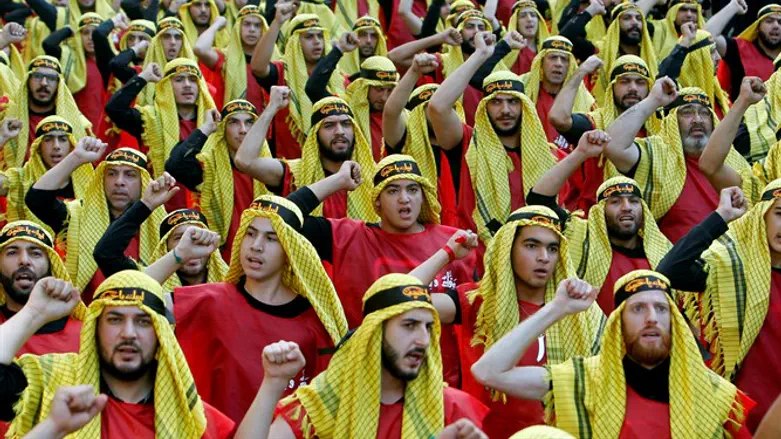
A candidate running against Hezbollah in Lebanon's parliamentary elections was in hospital on Sunday after being assaulted by a group of men in his southern hometown, he told AFP.
The candidate, journalist Ali al-Amin, is a vocal critic of the Tehran-backed Hezbollah, and is challenging the party in the upcoming May 6 legislative election.
"I was hanging up the very first picture of myself at the bottom of my street in Shaqra, just 100 meters away from my house," he told AFP.
Dozens of men approached him and demanded he take down the campaign poster, but he refused. They then began beating him, Amin said.
"I'm at the hospital now. My tooth is broken, I have very severe back pain and was hit in the head," he said.
Amin, who is running in the polls as a Shiite Muslim, directly blamed Hezbollah, saying, "It was an organized group of well-known guys, authorized by Hezbollah."
Lebanon's May 6 legislative vote will be the first since 2009, after years of deadlock and security concerns prompted repeated extensions of the parliament's mandate.
In addition to its armed wing, Hezbollah is a major political force in Lebanon. The group is a member of Prime Minister Saad Hariri’s cabinet.
Hezbollah and its ally the Amal movement are the two most powerful political forces in the predominantly Shiite southern district of Bint Jbeil, where Amin's hometown lies.
It is Amin's first time running in the southern district, which is granted 11 seats under Lebanon's new electoral law -- eight of them allocated for Shiite Muslims.
He told AFP he has received threats in recent years but Saturday's violence would not deter him.
"This incident won't affect us, we're still going to run. But we want the world to see what kind of elections will be held under Hezbollah," he said.
Despite being a member of the Lebanese parliament and cabinet, the United States considers Hezbollah a "terrorist" group and many criticize it for suppressing dissent in areas under its control.
In a press conference with Hariri last July, President Donald Trump called Hezbollah a threat to the entire Middle East and accused the group and Iran of fueling a humanitarian disaster in Syria.
"Hezbollah is a menace to the Lebanese state, the Lebanese people and the entire region. The group continues to increase its military arsenal which threatens to start yet another conflict with Israel... With the support of Iran, the organization is also fueling humanitarian catastrophe in Syria," he said.
The European Union has blacklisted Hezbollah's “military wing” as a terrorist organization, while failing to blacklist the group’s political arm.
Members of Congress in the United States have urged the EU to designate all branches of Hezbollah as a terror group – a demand which makes sense given that Hezbollah parliamentarians have been caught on camera calling for terror against Israelis.
